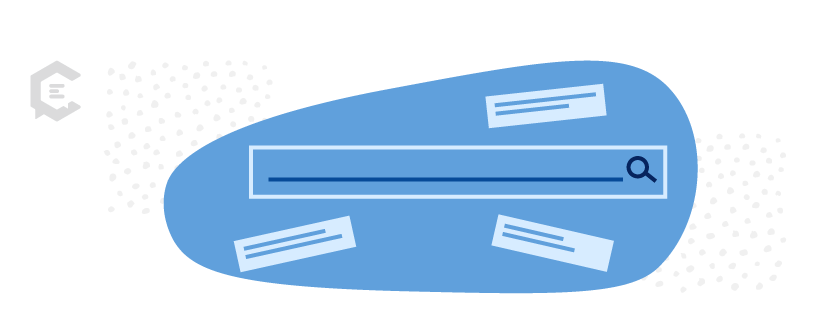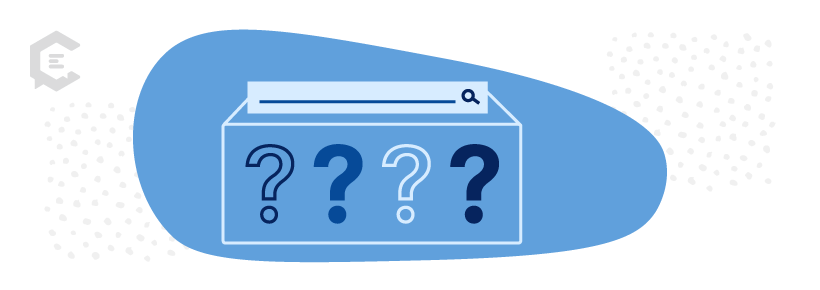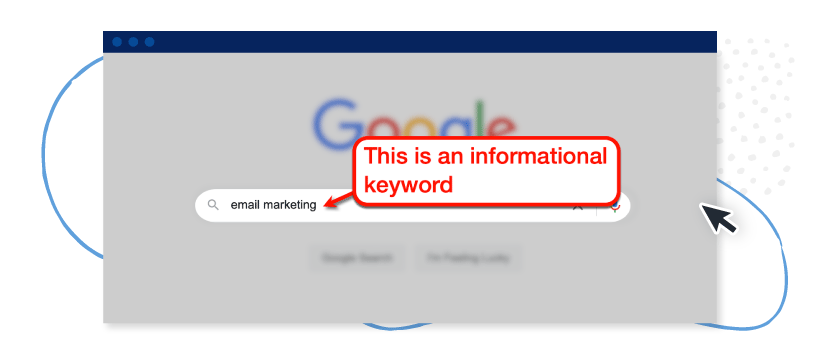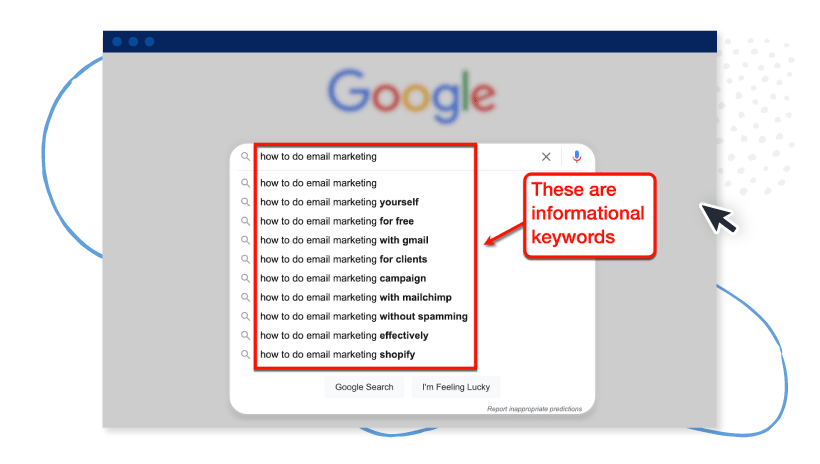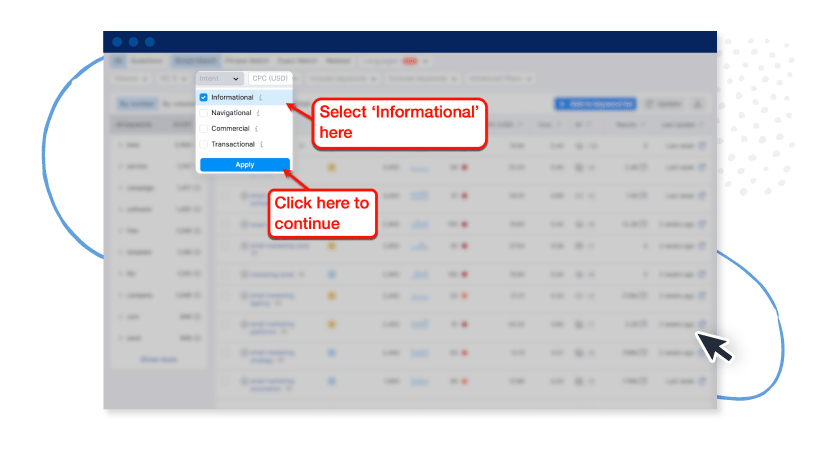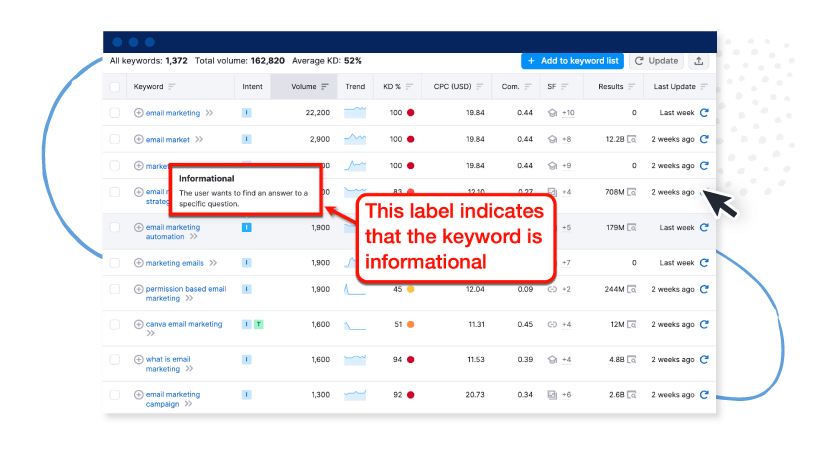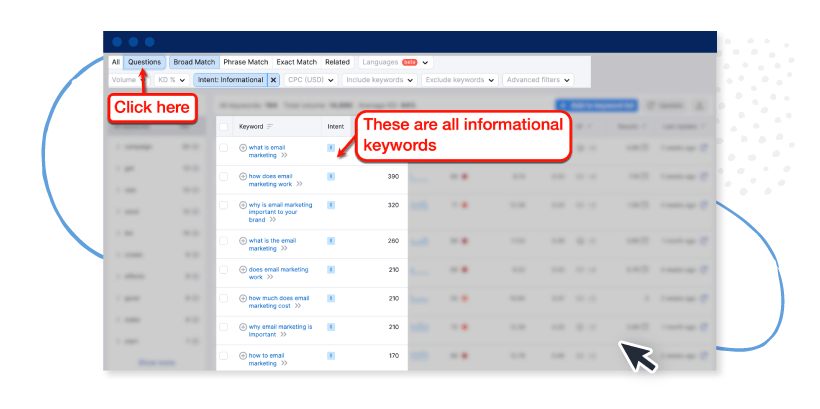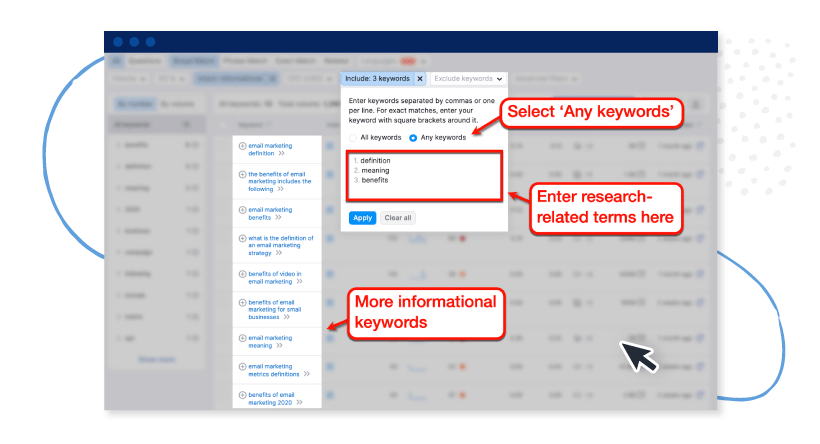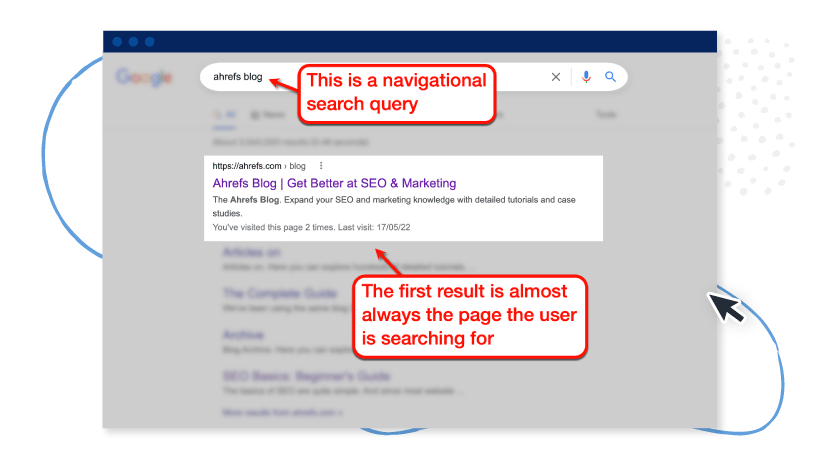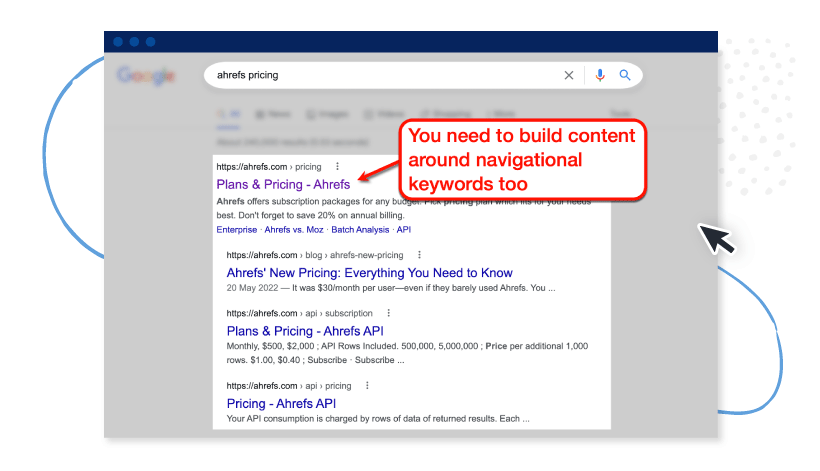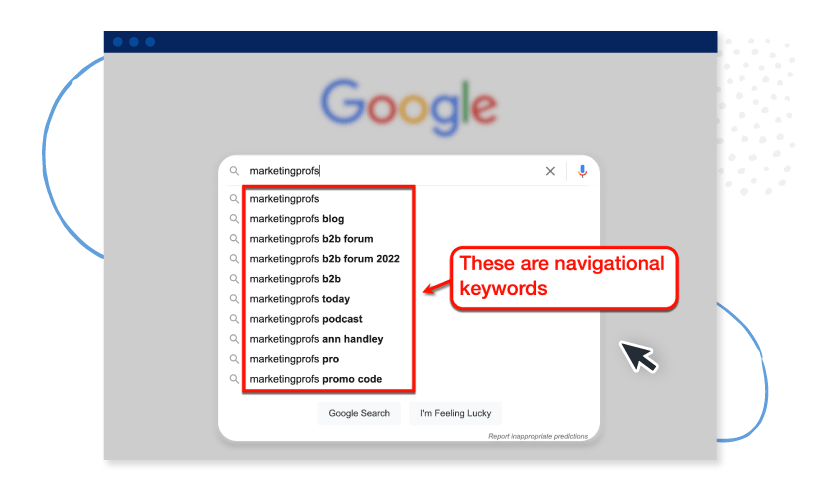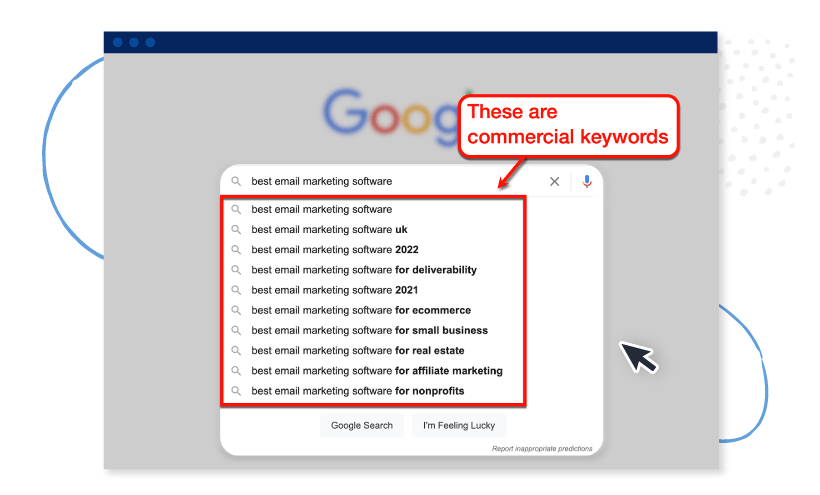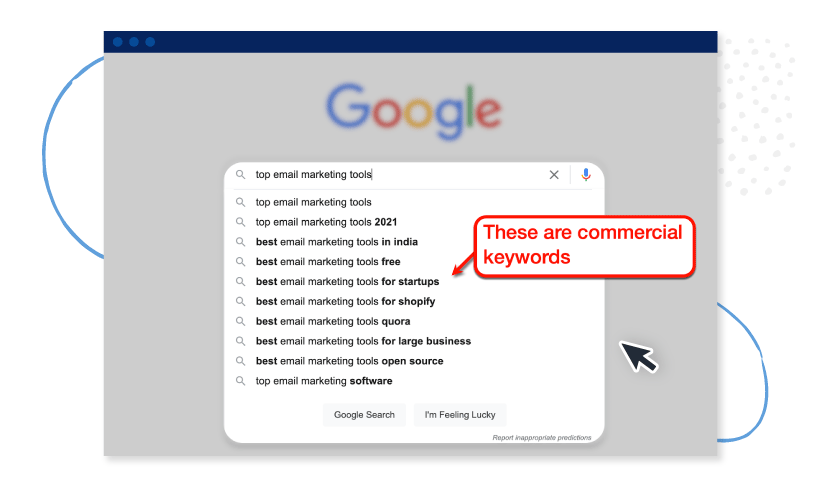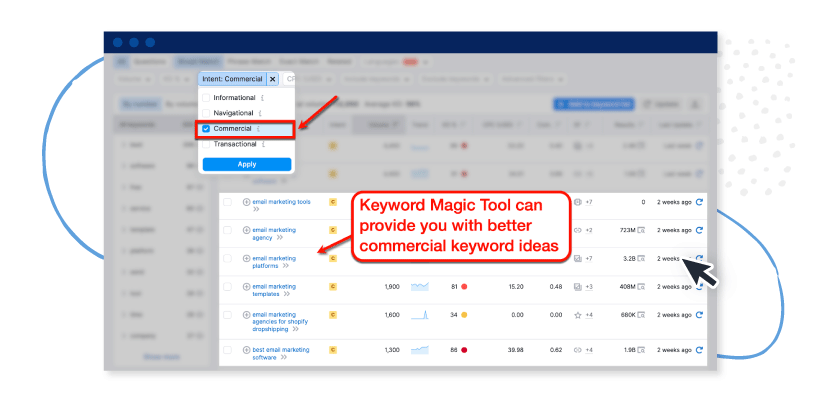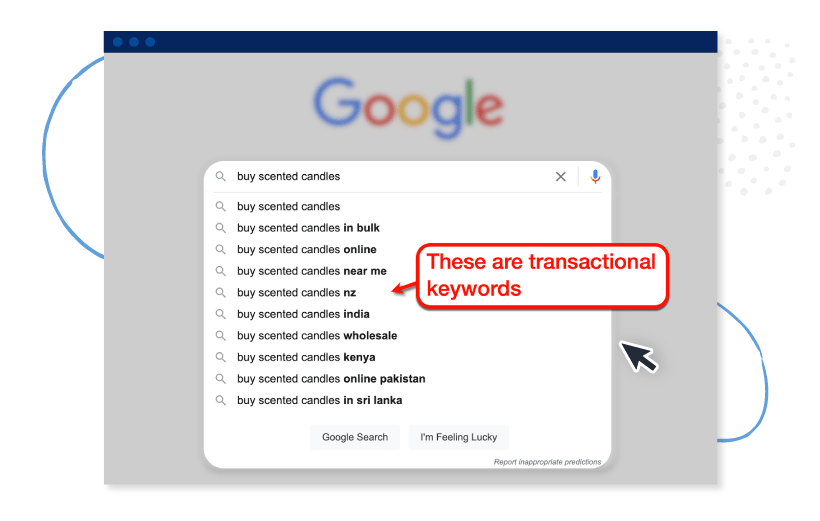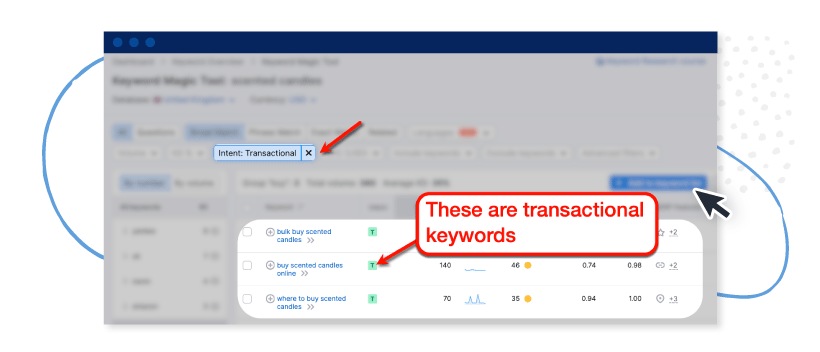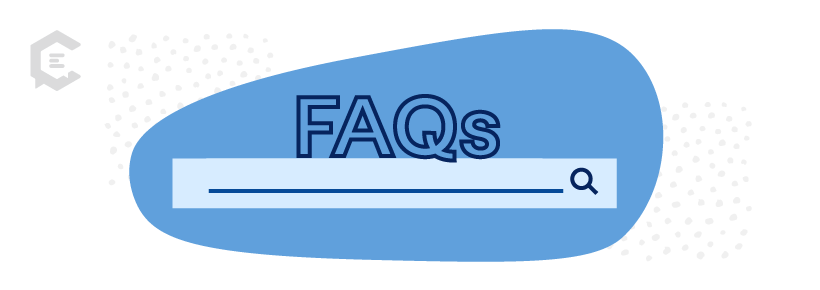Not all site visitors are created equal, which is why it’s crucial to know the different search intent types. Some are looking for guides that demonstrate how to solve their problems, while others already have their credit card on hand, eager to make a purchase.
Of course, you want to get site traffic that aligns with your SEO goals. That’s why you need to be mindful of a keyword’s search intent. Ignore it, and you just might herd thousands of irrelevant, low-quality traffic to your website.
Don’t be that person.
From topic ideation to content optimization, every step you take must align with the user’s goals and expectations — especially when it comes to keyword research. Without understanding search intent, it’s difficult to cash in on your SEO initiatives, even if you generate heaps of organic traffic.
Understanding Search Intent
Search intent is the reason why someone goes online to find information.
Keywords have various search intents attached to them. Some keywords help searchers obtain information about a specific topic. While some keywords help searchers find the best deals for the products or services they want to purchase. For the most part, there are four search intent types. (More on this below.)
Why do you need to identify search intent?
Below are hard-to-ignore benefits you can enjoy if you pay close attention to search intent.
- More sales. If you want to generate more sales, you need site visitors with a strong purchase intent — not those who are only looking for information. Being mindful of a keyword’s search intent helps you create content that will attract the right kind of organic traffic — those eager to take action on your offers.
- Reduce bounce rate. You need to publish relevant information for your visitors that will match their search intent. That gives users a reason to stay, consume your content, and check out more of your website.
- Maximize user engagement. Building content that aligns with your user intent and satisfies your audience’s goals can significantly increase user engagement. This results in more clicks on your CTA buttons and internal links.
- Find warm leads. Targeting keywords with high purchase intent will help you convert more traffic into paying customers. It will also prevent you from wasting time on keywords that will have little to no contribution to your lead generation or sales efforts.
- Get higher rankings. Building your content strategy around search intent lets you supercharge content quality and relevance. Since Google is all about giving users a great experience, this will directly — positively — impact your content’s keyword rankings.
- Generate better content ideas. Knowing the interests or goals of your audience will help you determine the perfect topic and content type for them. For example, if they want to compare products, consider offering them a listicle or comparison post.
Optimizing for search intent types is a win-win for you and your target audience.
In exchange for giving your audience the information they’re looking for, you can reap all of the benefits mentioned above. The next step is learning the different search types and keyword categories.
What are the four search intent types?
Search intent boils down to four categories: informational, navigational, commercial, and transactional. Here’s a deeper look at each search intent type.
Informational Search Intent Keywords
Searchers use keywords with informational intent if they’re doing research.
Most broad search queries fall under this category. If someone types “email marketing” in Google, they want to learn more about the subject—not purchase an email marketing tool or find the website of a specific email marketing platform.
Image Source: Google.com
Informational keywords correspond to the “discovery” and “interest” stages of the marketing funnel. They are valuable for brands looking to win prospects and establish their credibility.
But since broad informational keywords are generally challenging to rank for, marketers use question-based keywords to optimize for informational searches, like:
- What is
- How to
- Who is
- Where did
- Why is
Image Source: Google.com
How to identify informational queries
Use a keyword research tool with an intent filter like the Keyword Magic Tool by Semrush to look for informational keyword ideas.
The tool lets you filter keyword suggestions based on the four known user intent types. Simply run your search, click the ‘Intent’ drop-down menu, select ‘Informational,’ and click ‘Apply.’
Image Source: Semrush.com
The Keyword Magic Tool will automatically refresh the list to include only keywords with informational intent.
Image Source: Semrush.com
Another way to look for informational keywords with Semrush is to switch to ‘Questions.’ You can find this in the upper-left corner of the filter tool.
Image Source: Semrush.com
Alternatively, you can manually sieve out informational keywords by looking for suggestions that contain research-related terms, namely “definition,” “meaning,” and “benefits.”
The way you do that is by clicking ‘Expand’ from the filter toolbar, selecting ‘Any keywords,’ and entering these words.
Image Source: Semrush.com
Navigational Search Intent Keywords
Searchers who already know where they want to go use navigational keywords. These search queries contain the name of the brand, product, service, or technology they’re interested in.
For example, if users want to read the Ahrefs blog, all they need to do is search “Ahrefs blog.”
Image Source: Google.com
Navigational keywords can help brands in the “interest,” “consideration,” and “retention” stages of their marketing funnel.
There’s no need to research or optimize for navigational keywords. As long as you mention your brand or product name on your homepage, landing pages, and anywhere else that counts, it’s only a matter of time before Google puts you on the first page.
You may need to target navigational keywords if you lack the content that people are searching for about your brand.
For example, searchers may be looking for pricing information about your company. To be visible on the SERPs and capture these leads, ensure you have the content ready for that intent.
Image Source: Google.com
Another scenario where you need to target navigational keywords is when you have the same brand name as another company. After all, their pages might appear on the SERPs and not yours.
When your audience types in your brand name in Google’s search box, you want your website to appear, not the other company.
How to identify navigational queries
You can quickly identify navigational keywords by referring to Google’s Autocomplete suggestions.
Image Source: Google.com
You may also use keyword research tools for a more comprehensive list of navigational keywords. But since there’s no urgent need to find and optimize for batches of navigational search queries, most marketers simply focus on proper on-page optimization, such as inserting branded keywords in their title tags.
Commercial Search Intent Keywords
Users rely on commercial intent keywords if they’re in the “consideration” stage of the marketing funnel. These keywords signal interest in a particular product or service and usually lead to a purchase.
An example of a keyword with commercial intent is “best email marketing tools.” The searchers using the query most likely need an email marketing tool, and that’s why they’re searching for the best options.
Image Source: Google.com
Remember that commercial keywords, like navigational ones, may also contain brand names.
An example would be “Ahrefs alternatives” or “Ahrefs vs Semrush.” However, since these keywords aren’t used in finding a specific page on your website, the keywords aren’t considered navigational.
How to identify commercial queries
An easy way to find commercial keywords is to use Google Autocomplete. Simply enter a keyword or phrase that describes your target product along with commercial terms, like:
- Best
- Alternatives
- Top
- Reviews
Image Source: Google.com
Keyword Magic Tool’s intent filter can simplify this process. Simply click the “Commercial” option to view the search queries with commercial intent.
Keyword Magic Tool also includes essential keyword metrics to help you identify the best target keywords.
Image Source: Semrush.com
Transactional Search Intent Keywords
Searchers use transactional keywords when they are a step away from purchasing.
Often, transactional queries include words such as “buy,” “for sale,” “discount,” and “near me.” They may also contain the name of the brand users want to buy from.
Image Source: Google.com
Transactional search keywords are for users in the “conversion” stage of the marketing funnel. Remember to target transactional keywords if your goal is to generate more sales.
How to identify transactional search intent
The best way to find transactional keywords is to use a keyword research tool. This will reveal essential metrics that will help you identify viable keyword opportunities that can rake in profits.
Again, the intent filter on the Keyword Magic Tool comes in handy. Just toggle the intent filter sub-menu and select ‘Transactional.’
Image Source: Semrush.com
You can also filter out keywords with buyer terms to find transactional keywords. Pay attention to metrics like search volume, keyword difficulty, and CPC if you’re running an ad campaign.
Satisfying Search Intent to Maximize User Experience
To satisfy search intent, you need to do more than hire an expert SEO copywriter. You need the right content ideas to match the user’s expectations and objectives.
Now that you’re familiar with the different search intent types, here are some of the content ideas that match each intent:
Content for informational keywords
- Opinion pieces
- “How-to” guides
- Presentations
- In-depth guides
- Informative listicles
Content for navigational keywords
- Pricing pages
- Category pages
- About pages
- Author pages
Content for commercial keywords
- Explainer videos
- Comparison posts
- Product reviews
- Product roundups
- eBooks
- White papers
- Product tutorials
Content for transactional keywords
- Product pages
- Landing pages
- Discount offer page
FAQs About Search Intent
What is keyword intent?
Keyword intent reflects the motivation behind an online search query. Search intent types can be informational, navigational, commercial, or transactional.
How do you find the keyword intent?
Use tools like Semrush to uncover and analyze the intent behind your keywords. Alternatively, you can plug your keyword into Google and see what the top 10 results are.
What are the types of keywords?
There are four different types of keywords:
- Informational: For users who want to learn
- Navigational: For users who want to open a specific page
- Commercial: For users who are interested in a product or service
- Transactional: for users who are ready to buy
Start Ranking Your Pages Now
Fast-track your rankings with seasoned freelancers who create intent-focused, engaging content that matches your audience’s search intent.
Our vetted content experts are experienced with content types for every search intent — be it informational, navigational, commercial, or transactional. Watch your user engagement numbers skyrocket as your page rankings climb. Speak with a content strategist today about your content needs and goals to develop a custom plan for you.
